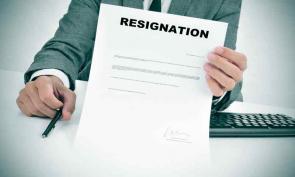
One might conclude from this introduction that what follows is a book with lots of sarcasm and little substance. But do not be mislead by the author’s irreverent and humorous writing style. This volume is packed with over 1,000 pages of useful information on traditional and non-traditional legal employers.
America's Greatest Places to Work With a Law Degree is a great reference volume for any lawyer in career transition or any law student trying to chart out a career path. There are chapters on finding good government jobs, public interest jobs and jobs with trade associations. There are special chapters on finding one of the ultimate dream jobs in sports, entertainment, and or in a number of other sexy industries.
The largest section of the book contains profiles of law firms. These are major firms that have tried to do things differently. Each profile contains basic background information on the firm (specialties, clients, etc.) and a description of “What it’s like to work there.”
Other chapters in the book have profiles of less traditional legal employers. Walton also includes chapters on how to make the most of any job and how to find jobs that are not listed in the book. (She comments that many of the “best” jobs are at small firms that are too small to be included in a national directory.)
This is Kimm Walton’s second major undertaking in the area of attorney career guidance. Her first work, Guerrilla Tactics for Getting the Legal Job of Your Dreams, is a national best seller. Walton, who herself quit the practice of law, also writes a column for the National Law Journal called “Dear Job Goddess” (a kind of Dear Abby for attorneys seeking employment). When she is not writing, she spends a portion of her time traveling the country as a motivational speaker.
Walton has chosen an interesting methodology for her research. Rather than directly surveying associates, partners, in-house counsel and lawyers working in non-legal positions (an awesome undertaking), she chose to speak with law school administrators. At the start of the book, she includes 3 pages of acknowledgments listing all of the administrators who contributed their thoughts (she also acknowledges the help of the many others who asked to remain anonymous.) In other words, she has clearly done a lot of homework.
The author emphasizes that each individual must decide for themselves what makes for a “great” job. Nonetheless, she identifies 19 qualities that are present in a good working environment (factors that have come up repeatedly in her discussions with lawyers). They include: 1) the employer matches or beats your idea what work would be like 2) the work is intellectually challenging 3) the hours are livable (or at least better than you thought), you have control over your scheduling and supervisors are sympathetic when you put in long hours 4) you receive tokens of appreciation from your employer 5) you feel that your work is meaningful 6) you play a significant role in the work 7) the compensation system is consistent with your values (whether lock step or eat-what-you-kill) 8) there are no artificial deadlines 9) the employer respects you personally 10) you know where you stand 11) supervisors are available to answer questions 12) supervisors share expertise with you 13) you have lots of responsibility early 14) you enjoy the people with whom you spend the most time 15) the organization is family friendly 16) you receive direct client contact 17) the support staff are happy 18) whatever you are doing is setting you up for what you want to do next and 19) the city where you live gives you the chance to contribute to the community.
One can certainly find fault in Walton’s methodology (i.e. law school administrators may have their own biases even though they speak with hundreds of law students and practicing attorneys); but she presents a convincing case why her method of gathering information is less prone to bias than directly soliciting input from attorneys about their jobs.
Kimm Walton is an optimist. She boldly states "I'll prove to you that you can take your law degree and have a great life, doing work you truly enjoy". Her basic premise is that the country is full of amazing law jobs, even large firms that belie the sweatshop image. And she has plenty of anecdotal evidence to prove it.
Walton also provides some tips on how to spot the telltale signs of a bad workplace (i.e. when you are checking out an opportunity). She includes: looking at the partner associate ratio, looking at the retention rate of associates, and observing how much laughter and happiness there seems to be when walking around the hallways.
America's Greatest Places to Work With a Law Degree is filled with practical career advice. While overall this is a great resource for law student and attorneys alike, the only criticism would be that it is perhaps too ambitious in trying to serve as a national reference title. For example, despite the great bulk of material, attorneys in Massachusetts will only find six entries of employers in Massachusetts and none of them are major law firms headquartered in Boston. This is noteworthy because Boston firms did very well in the American Lawyer's 1998 Survey of Mid-level Associates. According to the survey, 7 of the top 20 firms were located in the Hub.
Nonetheless, Walton is not trying to create a national ranking system and she openly admits that there may be employers who were omitted and deserve to be included in the next edition of the book. Furthermore, reading profiles from some of the employers in other cities will give a reader some idea of what to look for and what questions to ask. In short, America's Greatest Places to Work With a Law Degree is a very worthwhile purchase. It just weighs a lot.
About Harrison Barnes
No legal recruiter in the United States has placed more attorneys at top law firms across every practice area than Harrison Barnes. His unmatched expertise, industry connections, and proven placement strategies have made him the most influential legal career advisor for attorneys seeking success in Big Law, elite boutiques, mid-sized firms, small firms, firms in the largest and smallest markets, and in over 350 separate practice areas.
A Reach Unlike Any Other Legal Recruiter
Most legal recruiters focus only on placing attorneys in large markets or specific practice areas, but Harrison places attorneys at all levels, in all practice areas, and in all locations-from the most prestigious firms in New York, Los Angeles, and Washington, D.C., to small and mid-sized firms in rural markets. Every week, he successfully places attorneys not only in high-demand practice areas like corporate and litigation but also in niche and less commonly recruited areas such as:
- Immigration Law
- Workers Compensation
- Insurance
- Family Law
- Trust and Estate
- Municipal law
- And many more...
This breadth of placements is unheard of in the legal recruiting industry and is a testament to his extraordinary ability to connect attorneys with the right firms, regardless of market size or practice area.
Proven Success at All Levels
With over 25 years of experience, Harrison has successfully placed attorneys at over 1,000 law firms, including:
- Top Am Law 100 firms such including Sullivan and Cromwell, and almost every AmLaw 100 and AmLaw 200 law firm.
- Elite boutique firms with specialized practices
- Mid-sized firms looking to expand their practice areas
- Growing firms in small and rural markets
He has also placed hundreds of law firm partners and has worked on firm and practice area mergers, helping law firms strategically grow their teams.
Unmatched Commitment to Attorney Success - The Story of BCG Attorney Search
Harrison Barnes is not just the most effective legal recruiter in the country, he is also the founder of BCG Attorney Search, a recruiting powerhouse that has helped thousands of attorneys transform their careers. His vision for BCG goes beyond just job placement; it is built on a mission to provide attorneys with opportunities they would never have access to otherwise. Unlike traditional recruiting firms, BCG Attorney Search operates as a career partner, not just a placement service. The firm's unparalleled resources, including a team of over 150 employees, enable it to offer customized job searches, direct outreach to firms, and market intelligence that no other legal recruiting service provides. Attorneys working with Harrison and BCG gain access to hidden opportunities, real-time insights on firm hiring trends, and guidance from a team that truly understands the legal market. You can read more about how BCG Attorney Search revolutionizes legal recruiting here: The Story of BCG Attorney Search and What We Do for You.
The Most Trusted Career Advisor for Attorneys
Harrison's legal career insights are the most widely followed in the profession.
- His articles on BCG Search alone are read by over 150,000 attorneys per month, making his guidance the most sought-after in the legal field. Read his latest insights here.
- He has conducted hundreds of hours of career development webinars, available here: Harrison Barnes Webinar Replays.
- His placement success is unmatched-see examples here: Harrison Barnes' Attorney Placements.
- He has created numerous comprehensive career development courses, including BigLaw Breakthrough, designed to help attorneys land positions at elite law firms.
Submit Your Resume to Work with Harrison Barnes
If you are serious about advancing your legal career and want access to the most sought-after law firm opportunities, Harrison Barnes is the most powerful recruiter to have on your side.
Submit your resume today to start working with him: Submit Resume Here
With an unmatched track record of success, a vast team of over 150 dedicated employees, and a reach into every market and practice area, Harrison Barnes is the recruiter who makes career transformations happen and has the talent and resources behind him to make this happen.
A Relentless Commitment to Attorney Success
Unlike most recruiters who work with only a narrow subset of attorneys, Harrison Barnes works with lawyers at all stages of their careers, from junior associates to senior partners, in every practice area imaginable. His placements are not limited to only those with "elite" credentials-he has helped thousands of attorneys, including those who thought it was impossible to move firms, find their next great opportunity.
Harrison's work is backed by a team of over 150 professionals who work around the clock to uncover hidden job opportunities at law firms across the country. His team:
- Finds and creates job openings that aren't publicly listed, giving attorneys access to exclusive opportunities.
- Works closely with candidates to ensure their resumes and applications stand out.
- Provides ongoing guidance and career coaching to help attorneys navigate interviews, negotiations, and transitions successfully.
This level of dedicated support is unmatched in the legal recruiting industry.
A Legal Recruiter Who Changes Lives
Harrison believes that every attorney-no matter their background, law school, or previous experience-has the potential to find success in the right law firm environment. Many attorneys come to him feeling stuck in their careers, underpaid, or unsure of their next steps. Through his unique ability to identify the right opportunities, he helps attorneys transform their careers in ways they never thought possible.
He has worked with:
- Attorneys making below-market salaries who went on to double or triple their earnings at new firms.
- Senior attorneys who believed they were "too experienced" to make a move and found better roles with firms eager for their expertise.
- Attorneys in small or remote markets who assumed they had no options-only to be placed at strong firms they never knew existed.
- Partners looking for a better platform or more autonomy who successfully transitioned to firms where they could grow their practice.
For attorneys who think their options are limited, Harrison Barnes has proven time and time again that opportunities exist-often in places they never expected.
Submit Your Resume Today - Start Your Career Transformation
If you want to explore new career opportunities, Harrison Barnes and BCG Attorney Search are your best resources. Whether you are looking for a BigLaw position, a boutique firm, or a move to a better work environment, Harrison's expertise will help you take control of your future.
Submit Your Resume Here to get started with Harrison Barnes today.
Harrison's reach, experience, and proven results make him the best legal recruiter in the industry. Don't settle for an average recruiter-work with the one who has changed the careers of thousands of attorneys and can do the same for you.
About BCG Attorney Search
BCG Attorney Search matches attorneys and law firms with unparalleled expertise and drive, while achieving results. Known globally for its success in locating and placing attorneys in law firms of all sizes, BCG Attorney Search has placed thousands of attorneys in law firms in thousands of different law firms around the country. Unlike other legal placement firms, BCG Attorney Search brings massive resources of over 150 employees to its placement efforts locating positions and opportunities its competitors simply cannot. Every legal recruiter at BCG Attorney Search is a former successful attorney who attended a top law school, worked in top law firms and brought massive drive and commitment to their work. BCG Attorney Search legal recruiters take your legal career seriously and understand attorneys. For more information, please visit www.BCGSearch.com.
Harrison Barnes does a weekly free webinar with live Q&A for attorneys and law students each Wednesday at 10:00 am PST. You can attend anonymously and ask questions about your career, this article, or any other legal career-related topics. You can sign up for the weekly webinar here: Register on Zoom
Harrison also does a weekly free webinar with live Q&A for law firms, companies, and others who hire attorneys each Wednesday at 10:00 am PST. You can sign up for the weekly webinar here: Register on Zoom
You can browse a list of past webinars here: Webinar Replays
You can also listen to Harrison Barnes Podcasts here: Attorney Career Advice Podcasts
You can also read Harrison Barnes' articles and books here: Harrison's Perspectives
Harrison Barnes is the legal profession's mentor and may be the only person in your legal career who will tell you why you are not reaching your full potential and what you really need to do to grow as an attorney--regardless of how much it hurts. If you prefer truth to stagnation, growth to comfort, and actionable ideas instead of fluffy concepts, you and Harrison will get along just fine. If, however, you want to stay where you are, talk about your past successes, and feel comfortable, Harrison is not for you.
Truly great mentors are like parents, doctors, therapists, spiritual figures, and others because in order to help you they need to expose you to pain and expose your weaknesses. But suppose you act on the advice and pain created by a mentor. In that case, you will become better: a better attorney, better employees, a better boss, know where you are going, and appreciate where you have been--you will hopefully also become a happier and better person. As you learn from Harrison, he hopes he will become your mentor.
To read more career and life advice articles visit Harrison's personal blog.






